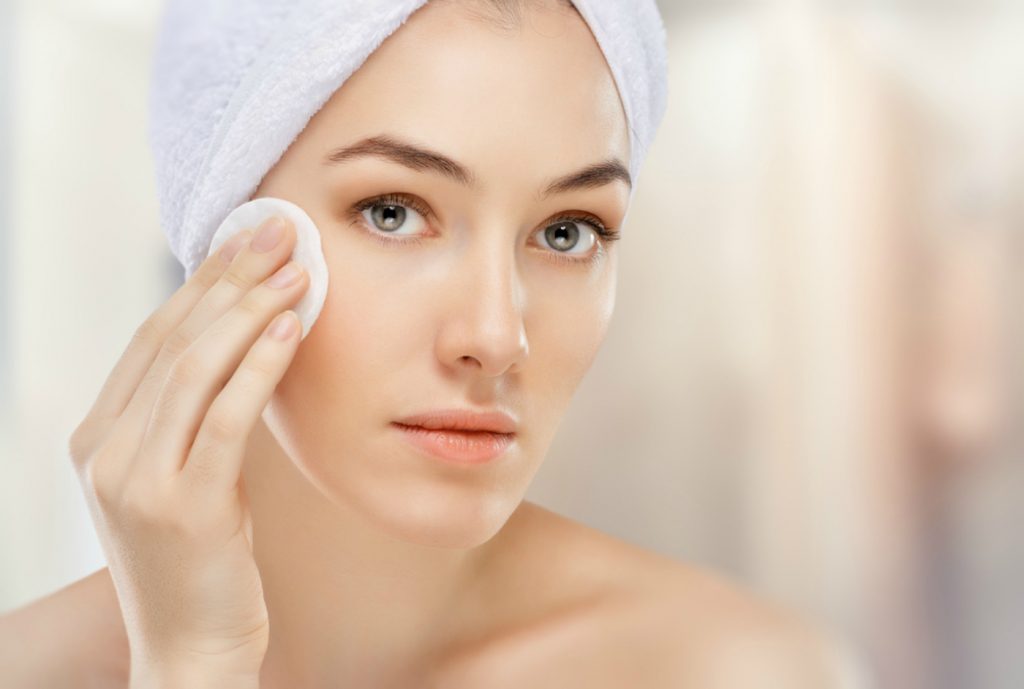Salicylic acid is a necessary fighter in the battle against acne and frustrating breakouts. For anyone that has suffered from the occasional or chronic zits, salicylic acid is the holy grail. You can apply it to acne overnight, and it will often dry out a zit, either making it less noticeable or eliminating it entirely.
And while we’re grateful for the results, it’s good to know just what exactly you’re putting on your skin, and how it’s so effective. That way, you’re more knowledgeable about what’s going in your body, and you can maximize the benefits of the acid for your specific skin issues.
What is salicylic acid?
When it comes to acid in skincare products, the most popular kinds are BHAs (beta hydroxy acids) and AHAs (alpha-hydroxy acids).
Salicylic acid is a BHA, and is derived from the bark of the willow tree, where it belongs to a class known as salicylates. BHA’s are oil soluble rather than the water-soluble AHAs, allowing it to penetrate pores better and operate at a deeper level.
While AHA’s can slough away dead skin on the surface, BHAs work mostly under the surface, allowing a more powerful method to unclog pores.
Salicylic acid can come in various strengths and topical forms including cleansers, toners, liquids, or creams, and it can treat various skin conditions.

What does salicylic acid do?
Salicylic acid is particularly good at targeting whiteheads and blackheads, as they dissolve the gunk that’s in our pores. It also has anti-inflammatory properties which can reduce the appearance of red and angry pimples or ingrown hairs.
This acid is so strong, it can dissolve your skin’s intercellular “glue” that keeps skin together, whereas AHAs can only reach the surface.
Due to its strength, if you have extremely sensitive skin or incorporate it too frequently in your routine, it can dry out skin or cause irritation.

Salicylic acid uses
This acid can be used as an exfoliant, as it dramatically softens the surface layer of skin cells.
In mild levels, salicylic acid can reduce conditions like seborrheic demerits and dandruff.
It’s fantastic for a weekly deep cleaning add-on to your routine as it can reduce the overproduction of sebum and keep acne at bay.
Due to its strength, if you have extremely sensitive skin, cystic acne, or incorporate it too frequently in your routine, it can dry out skin or cause irritation.
Salicylic acid can increase blood circulation and make your skin brighter overall.
While many acids and substances like Benzoyl peroxide leave skin inflamed after applying them for the first time, salicylic acid is calming enough that it generally doesn’t calm inflammation when applied. Hormonal acne

Salicylic acid face wash
The most popular cleanser that makes use of different kinds of salicylic acids, the SkinCeuticals LHA Cleansing Gel is a cleanser that simultaneously exfoliates while revealing a new layer of brightness underneath. Salicylic acid, glycerin, sorbitol, and lipo-hydroxy acid can remove both excess oil and act as a makeup remover. This product reduces breakouts and finds the perfect medium between salicylic acid and glycolic acid, which is highly effective for anti-aging.

Salicylic acid body wash
Acne and skin problems don’t just exclusively happen to your face, your current body wash could be making it worse. CeraVe has always been a godsend for people with sensitive skin, and now those who suffer from body acne or rough, bumpy skin. With essential ceramics that strengthen the skin’s natural barrier and time-release technology, this wash is also micro-bead free, so say goodbye to irritation.

Salicylic acid acne treatment
This product promises to improve your skin’s appearance within a month, and fittingly is called “Solution.” This product stands out from the crowd due to its unique 10% blend of skincare acids. Three acid groups work to reduce redness, blemishes, and oversized pores: AHAs, BHAs, and PHAs, or Polyhydroxy Acid. Whether you have hormonal acne or very sensitive skin, this aloe-infused formula soothes and hydrates while it works. You can use it as a toner after cleansing.

Salicylic acid side effects
While Salicylic acid is extremely effective, there are many brands and a range of products available. It’s not always right for everyone and those who do use it should monitor usage unless it explicitly says it can be used daily. Due to its strength, if you have extremely sensitive skin, cystic acne, or incorporate it too frequently in your routine, it can dry out the skin and cause irritation, or peeling.
Salicylic acid should never be used on skin with infections, open wounds, or existing irritation, and should be tested on a small patch first to avoid allergies. Be cautious when combining with other kinds of acids in your routine.
